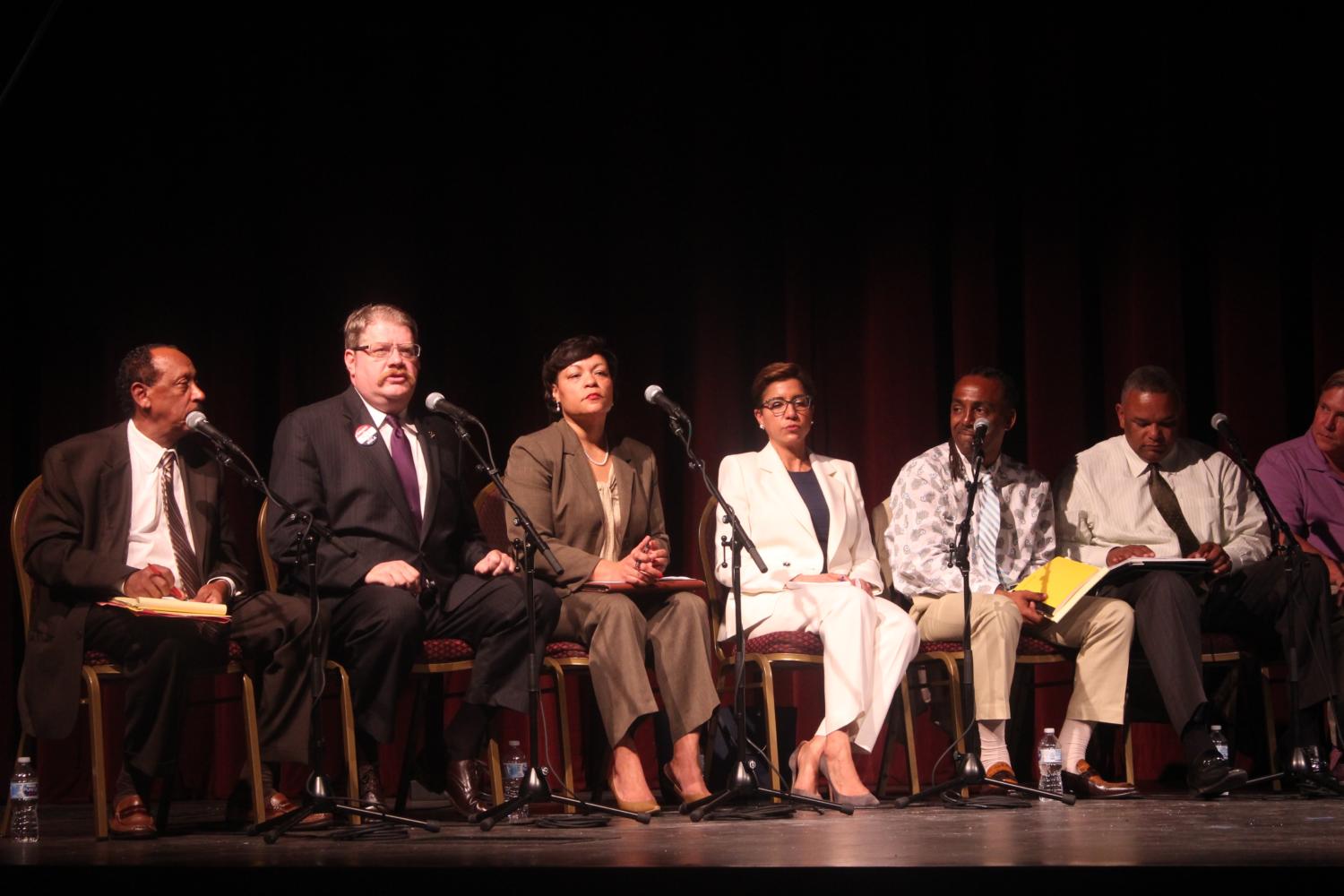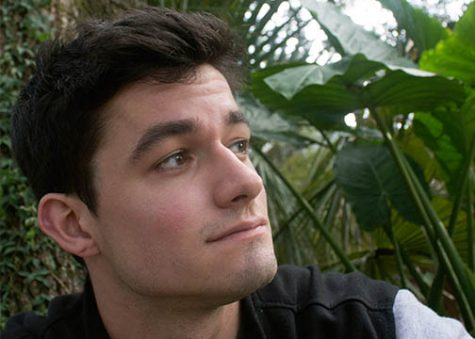Mayoral candidates stand for musicians’ rights
Mayoral candidates discuss current issues with policies facing musicians in New Orleans Photo credit: Caleb Beck
September 21, 2017
Organized by local cultural advocacy group The Ella Project, candidates were interviewed en masse in Carver Theater on Monday, Sept. 11 to define their platforms on significant problems facing New Orleans’ creative class such as affordable housing, sound ordinances, rising city fees and other setbacks.
Moderator Lolis Eric Elie began the forum by defining what made this conversation so necessary in his eyes.
“It’s a general proposition when you talk to politicians about music, they talk to you about tourism. They talk to you about how to get dollars from outsiders to fill city spaces, to do nothing for music or musicians. Our hope is that the discussion tonight will be different,” Elie said.
The panelists joining Elie included Jan Ramsey, editor-in-chief of OffBeat Media, Larry Blumenfeld, journalist and music critic, Fred Johnson, co-founder of the Black Men of Labor and Melissa Weber (DJ Soul Sister).
In his opening statement, candidate Troy Henry said thriving music culture is an infrastructure just as crucial as roads, wages and crime.
“We can become the most desired city in America if we learn to support our musicians,” Henry said.
The first question posed by Elie asked what the candidates found most problematic about the current policy for musicians, which spurred issues including affordable housing, unionizing and sound ordinances.
Candidate Michael Bagneris identified rent stagnation in middle-class neighborhoods as a troubling trend forcing musicians further and further from venues in the city.
“Short-term housing is causing our musicians a serious problem in affording rent and is pushing our musicians out of long-term living. I would let the neighborhoods like Treme decide what they want to do to gentrification,” Bagneris said.
Candidate Byron Cole instead pointed to a larger devaluing of the music industry within the city.
“We need to have guaranteed pay on Frenchmen for our musicians. It’s ridiculous to subject them to a door situation when they’re the bread and butter for entertainment in our city. Booking agencies need to raise their standards,” Cole said.
Several candidates encouraged organization for musicians and cultural bearers, like candidate Tommie Vassel who voiced his frustration with middlemen snubbing local artists in favor of out-of-state artists by offering them lower fees to play Jazz Fest and neighborhood second lines.
“We’re not going to allow out-of-towners to be paid a higher price when our musicians locally are treated as second-class citizens,” Vassel said.
Melissa Weber (DJ Soul Sister), asked the candidates the next policy question.
“The New Orleans Police Department has often arrested musicians for violating curfew if they are young or playing in unauthorized locations. What will be the policy of your administration towards the arrest of musicians? ” Weber said.
Candidate LaToya Cantrell said that her policies would change the current law on the books and musicians should be able to play without harassment.
“I will embed an entertainment director, much like San Francisco has, to provide immediate services to our musicians and establishments, and minimize any negative interference between law enforcement and our musicians,” Cantrell said.
Troy Henry said that his administration will not allow police to go after musicians for the simple act of playing music.
“Quite frankly, if one nanosecond is wasted on an officer harassing a musician, given the response time of our police, heads will roll. Police will not be employed where they don’t need to be,” Henry said.
Candidate Frank Scurlock was similarly critical of NOPD’s priorities, sharing his anecdote of being arrested in May for protesting the removal of the Jefferson Davis monument.
“We have a serious real crime problem and it’s not music, music is a savior,” Scurlock said.
Larry Blumenfeld brought up rising fees levied against social aid and pleasure club second-line parades, pointing out that after present fees, the parades cost more than Mardi Gras parades.
“As mayor, what are your ideas to create a more hospitable and supportive context for these communities?” Blumenfeld asked.
Cantrell said that it’s going to be a chief priority to provide new options not only for artists to work but to thrive under her campaign.
“Our city is not prioritizing reinvesting in the masking community, the musicians and the people that we market, and I aim to change that by incentivizing housing and healthcare to help our culture bearers,” Cantrell said.
Henry, a business consultant, said musicians and cultural communities need to be treated like businesses in order to face the hurdles thrown their way.
“Unfortunately the city has a management problem and a fee issue problem so severe that they think we’re walking ATM machines. We will offer a support services program to ensure the challenges these musicians face are met,” Henry said.
Fred Johnson directed the conversation with an emotionally charged statement on the decline he’s seen between the politicians and the creative community.
“The politicians who migrate here say they love the music, but all of a sudden we start to get all these laws passed and I have a sneaking suspicion it’s got to do with the level of contribution,” Johnson said.
Jan Ramsey finished the round of questions, reiterating local musicians need to be respected, heard and organized before questioning how the candidates would usher in a prosperous creative community.
“How do you see your administration dealing with all the moving parts of the music ecosystem and bringing them together under a great business climate?” Ramsey said.
Candidate Desiree Charbonnet said that her office will introduce a liaison in the mayor’s office to propose specialized policies and hear complaints.
“That person should be from your industry, understand and speak your language, I can only advocate on the community’s behalf. If you don’t know it, you can’t speak for it, and I think that’s one of the biggest problems here,” Charbonnet said.
Scurlock finished his thoughts with an appeal to reason to the forum.
“We are the heart and birthplace of jazz, and we need to encourage and energize our community to do more for these bands, not less,” Scurlock said.








